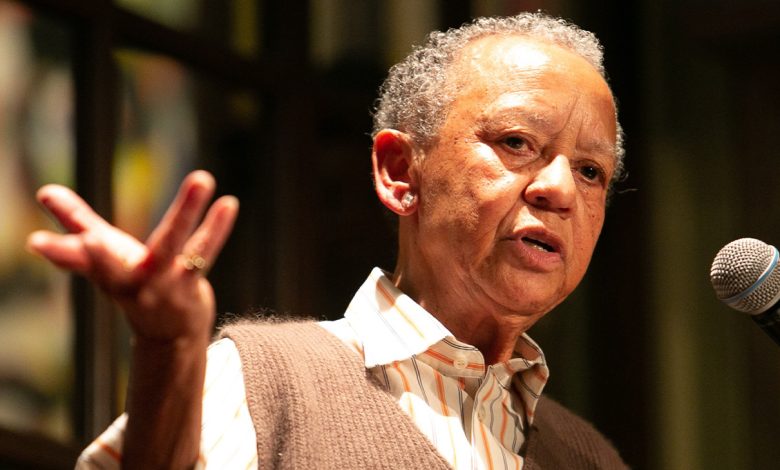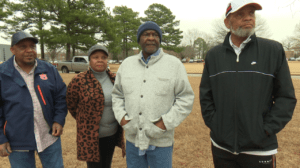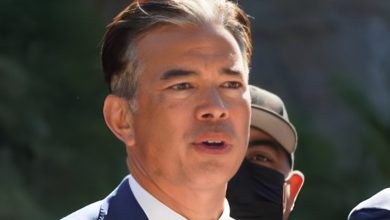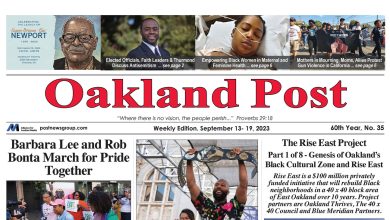IN MEMORIAM: Nikki Giovanni, Iconic Poet and Voice of the Black Arts Movement, Dies at 81

By Stacy M. Brown, NNPA Newswire
Nikki Giovanni, the groundbreaking poet, author, and professor whose work embodied the spirit of the Black Arts Movement and beyond, died on Monday in Blacksburg, Virginia. She was 81. Her wife, Virginia C. Fowler, confirmed the cause was complications from lung cancer.
Born Yolande Cornelia Giovanni Jr. on June 7, 1943, in Knoxville, Tennessee, Giovanni spent her formative years in Cincinnati, Ohio, but returned to Knoxville every summer with her sister to visit their grandparents. These visits helped shape her sense of identity and belonging, themes that would become central to her work.
She graduated with honors in history from Fisk University, a historically Black college in Nashville and her grandfather’s alma mater. While at Fisk, Giovanni’s defiant spirit and intellect were evident. Expelled briefly due to issues with authority, she returned after a period of reflection and was readmitted with the help of a supportive Dean of Women. This early experience of rebellion and reconciliation laid the groundwork for her unapologetic approach to life and art.
A Voice of Rebellion and Resilience
Giovanni rose to prominence during the 1960s as a fierce voice in the Black Arts Movement alongside literary giants such as Amiri Baraka, Audre Lorde, Ntozake Shange, and Sonia Sanchez.
Her early works, including “Black Feeling, Black Talk” (1968) and “Black Judgement” (1968), were steadfast in their militancy and pride. Her poetry grappled with the injustices faced by Black Americans, including the brutal murder of Emmett Till and the bombing of the 16th Street Baptist Church in Birmingham, which killed four Black girls.
At a time when mainstream publishers showed little interest in the work of a young Black woman writing what they labeled “militant” poetry, Giovanni took matters into her own hands. She self-published her work, founding a company to distribute her collections. “No one was much interested in a Black girl writing what was called ‘militant’ poetry,” she once wrote. “I thought of it as good poetry.”
Her boldness paid off. In 1972, at just 29 years old, she sold out Alice Tully Hall at Lincoln Center, reading her poetry to a crowd of more than 1,000 alongside the New York Community Choir.
The following year, for her 30th birthday, she filled the 3,000-seat Philharmonic Hall, where the choir joined her again, along with Melba Moore and Wilson Pickett. The audience erupted joyfully when she recited her now-iconic poem, “Ego-Tripping.” The piece, a celebration of Black female strength, begins with the lines:
“I was born in the congo
I walked to the fertile crescent and built
the sphinx…”
And concludes triumphantly:
“I am so perfect so divine so ethereal so surreal
I cannot be comprehended
except by my permission
I mean…I…can fly
Like a bird in the sky…”
A Prolific Career
In addition to her poetry, Giovanni wrote children’s books, essays, and a memoir, “Gemini: An Extended Autobiographical Statement on My First Twenty-Five Years of Being a Black Poet (1971).” She was known for her candid reflections on race, gender, and identity, blending the personal with the political in provocative and deeply human ways.
Giovanni’s interview with James Baldwin on the television program “Soul!” in 1971 remains a touchstone in American cultural history. Their two-hour conversation, filmed in London, explored the intersections of race, gender, and societal expectations. At one point, she posed a raw question about the cycle of violence affecting Black families: “What do you do about a man who is mistreated in the world and comes home and brutalizes his wife? Where does that leave his daughter?” Baldwin’s response: “Sweetheart. Our ancestors taught us how to do that.”
An Educator and Mentor
In 1987, Giovanni joined the faculty at Virginia Tech, where she became a University Distinguished Professor. She remained there for 35 years, influencing generations of students with her wit, wisdom, and unwavering commitment to truth.
Even in academia, her rebellious spirit shone through. Giovanni famously supported her student, Seung-Hui Cho, before he committed the tragic mass shooting at Virginia Tech in 2007. She had him removed from her class when she sensed his troubling nature.
Giovanni earned seven NAACP Image Awards, a Grammy nomination, and the distinction of having three of her books listed as New York Times and Los Angeles Times best-sellers—a rare feat for a poet.
Giovanni described herself as a dreamer. “My dream was not to publish or to even be a writer,” she remarked. “My dream was to discover something no one else had thought of. I guess that’s why I’m a poet. We put things together in ways no one else does.”
A Legacy of Dreams and Defiance
Giovanni’s poetry was a lifeline for many, especially young Black women who saw their power and potential reflected in her verses. She wasn’t just a poet but a cultural force who celebrated Blackness, womanhood, and the art of dreaming. “I’m a writer. I’m happy,” she said.
Nikki Giovanni leaves behind her son, Thomas, and her granddaughter. Her father, mother, sister, and aunt preceded her in death.






